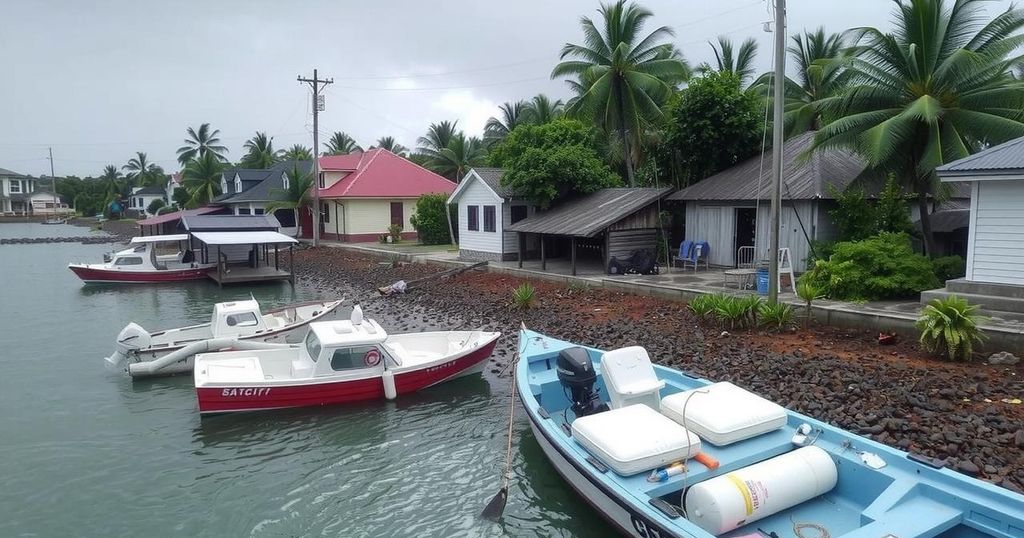Comoros Declares Week of Mourning Following Cyclone Chido’s Devastation
The Comoros declared a week of national mourning following Cyclone Chido, which particularly impacted Mayotte, leading to fears of several hundred casualties. President Azali Assoumani highlighted the enormous damage and loss of life. The cyclone, registering as a category four storm, struck on December 16, causing widespread destruction and hardship in the region.
In response to the devastating impact of Cyclone Chido, President Azali Assoumani of the Comoros has announced a week of national mourning. This cyclone, categorized as a level four storm, particularly affected the neighboring French overseas territory of Mayotte, where local officials fear the death toll could reach several hundred. Many of the casualties are believed to be among Comoran nationals residing in makeshift housing in shantytowns. The mourning period will conclude on Sunday as the country grieves significant losses and damage to infrastructure.
The cyclone, which struck on December 16, unleashed winds exceeding 220 kilometers per hour (137 miles), marking it as the most severe storm to impact Mayotte in nearly a century. The disaster has left many in distress, especially considering that roughly half of Mayotte’s population of 320,000 is of Comoran descent. The geographic proximity of the islands, with only 70 kilometers separating them, has led to significant interdependence, especially as many Comorans travel clandestinely to Mayotte for better opportunities. Following Cyclone Chido, there is a pressing need for both humanitarian assistance and rebuilding efforts in the afflicted regions of the archipelago.
The Comoros archipelago, located in the Indian Ocean near the French overseas department of Mayotte, has faced severe climatic challenges, particularly from tropical cyclones. Cyclone Chido is noted as the most intense storm to strike Mayotte in 90 years, having devastating consequences not only for its residents but also for the Comoran nationals living there. The historical context of the relationship between Comoros and Mayotte, where the latter chose to remain French after independence referendums, compounds the distress as many families have ties across these islands. The socio-economic conditions in Comoros, where a considerable percentage of the population lives in informal settlements, increase their vulnerability to such natural disasters.
In summary, the aftermath of Cyclone Chido has prompted a significant national mourning period in the Comoros as the nation grapples with the consequences of this unprecedented storm. With fears of a high death toll and extensive infrastructure damage in both the Comoros and Mayotte, immediate humanitarian efforts will be crucial. The situation underscores the need for greater disaster preparedness and international support to assist affected communities in rebuilding their lives.
Original Source: www.lemonde.fr




Post Comment